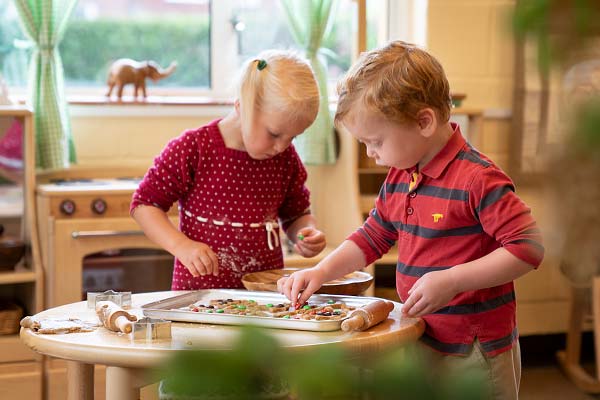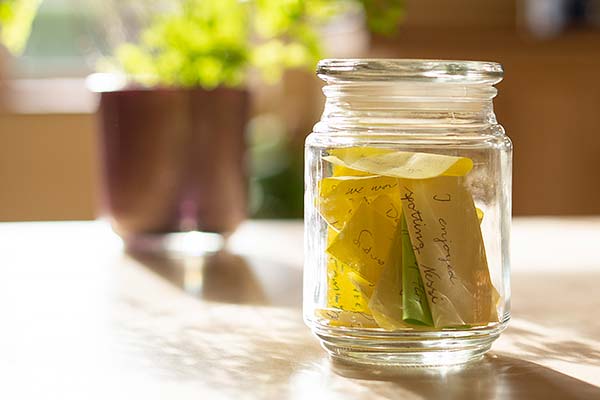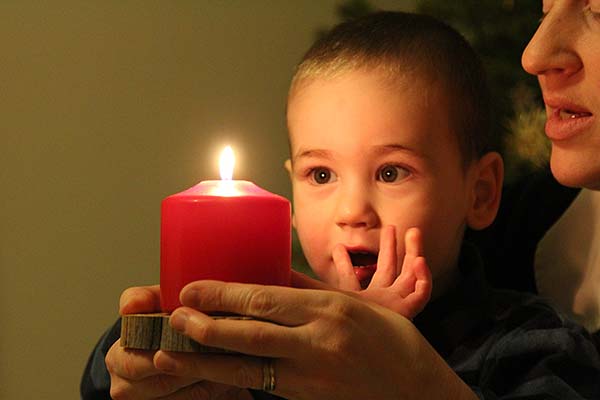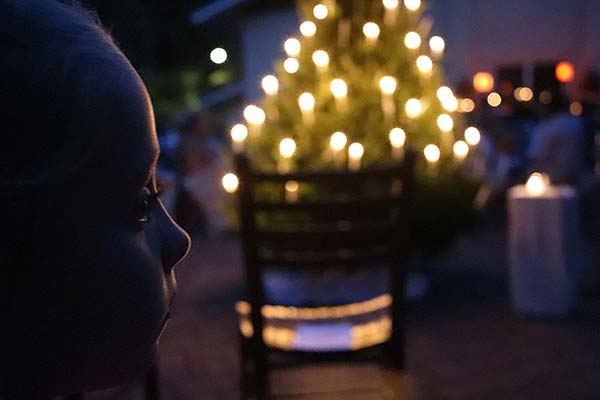Honouring children
| November 2020Honouring our children
“It takes a village to raise a child.”
I come from a tiny little family: Mum, Dad, although Dad is with the angels now, and a brother. I have two children of my own with my husband who has no family. Even though I was brought up in a tiny little unit of four, I was always aware of my community. I grew up in a tiny coastal village in Argyll off the west coast of Scotland. We all knew each other, supported, celebrated together, never more so than at the Christmas time of year. Christmas was never about the usual forced, televised, commercialised season it is now when we gathered together.
The nursery, primary school, community groups and three churches all celebrated together as the leaves started to fall. That signalled for me that Christmas was coming. It was certainly never the adverts, blaring music or huge red articulated van promoting a fizzy drink that seems to have taken over that joy, anticipation and excitement.

For the whole of advent, we would go as a family to gather with others, making, laughing, singing, chatting. There would be small gatherings and large gatherings. There always seemed to be joy and hope and freedom to just be. It was all about connection, about giving, sharing time, and caring for each other.
“Let us protect our children; and let us not allow them to grow up into emptiness and nothingness.”
Giving
Giving makes us feel happy, is good for our health, helps connections, evokes gratitude - it’s contagious.
Giving comes in many different forms. It can be buying a present for someone, donating to charities, volunteering in some way for people who need it more than ourselves.
It’s suggested that the hormone oxytocin is released and this induces feelings of warmth, euphoria, and connection to others when we give to others.
We have a tradition in our family at Christmas that we should always give something (it doesn’t have to be new, in fact created or gathered by you is better) to someone who would never expect something from you. The idea is about the joy of giving with no expectation of receiving. It was always about doing it with quiet whispers and smiles or in fact with the person receiving not knowing it was from you. I still do this now, and my children do too.
I love nothing more than when my two give me a collection of photographs of the four of us together over the past year. One Christmas the children gave me my favourite gift: a simple little jar with folded Post-it notes. Each one had a handwritten message of how we had shared love that year. I still have it by my bed, and every now and then empty the memories onto the bed, smile and cry and am amazed at the love I have for my two children.

Love
“There is more hunger in the world for love and affirmation than there is for food.”
What is love? Is it a feeling of affection towards someone? Is it about tenderness and compassion? Is it about attachment?
Love and compassion have lots of benefits. They help us to move beyond “I, me, myself” to “We, us and others”.
Think of three things you love to do. I love walking, especially surrounded by the hills, glens, and lochs of home. However, I prefer to share those walks with someone else.
A few years ago, I travelled with Community Playthings to Germany, to visit Froebel’s first school. It was the best professional experience of my 30 years of being a teacher. One of the activities we shared was to walk up the hill and stand together on the spot where Froebel looked down into nature and perhaps thought “this will be the garden of children – kindergarten”. It was an honour and a privilege to share this experience. The best part for me was a long walk up into the hills. We were a group of 20 and every little while you would find yourself walking with someone different, speaking, sharing our ideals, values, and principles, honouring our children.
I also love having a wee whisky, but much prefer sharing my dram with someone, and I love, love, love singing! I’m not good and much prefer a chorus of voices. It’s also my favourite interaction with children.
Love is a Basic Human Need. Love and belonging are part of Maslow’s suggested hierarchy of needs. Once our need for water, food, security, and safety are met, we need to connect and feel love to grow. How do we demonstrate to every child “I love you; I care about you and I enjoy spending time with you”?

The middle of winter has long been a time of celebration around the world. People celebrated light and birth in the darkest days of winter. Others rejoiced that the worst of the winter was behind them. All around the world people celebrate their beliefs, look to their hopes, dreams and expectations for the year ahead. What will our future be? At the moment it is ‘fuzzy round the edges’, not clear at all. I’ve decided to celebrate and live in the moment. I’m part of a loving family, I have the best community at work- all you fabulous early years people, and I try to keep my eye on my global community too. How can I do better, how can I give, share and love to make it a better world for me and for you? I have faith that we will get past it.

Faith
Faith for me is the expectation that things will get better, there are good things to come. This year, now more than ever before, I feel if we connect, if we work together, if we give something of ourselves, love each other, consider the actions, gestures and words that we share with others, we still have hope. Hope that perhaps in these times of change, of sharing a vastly different world, we all look to move forward with tolerance, respect and solidarity, but mostly with love and kindness.
“In a world where you can be anything, be kind.”






